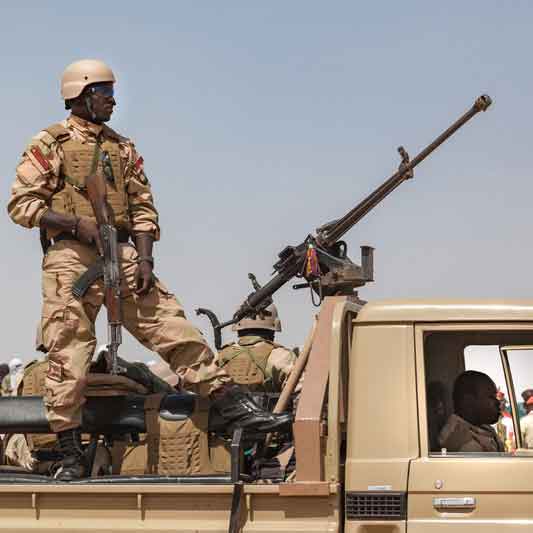On the afternoon of Sunday, September 1, 2024, Mafa village in Yobe State, northeastern Nigeria, fell under attack by suspected members of Boko Haram. The incident resulted in dozens dead and many missing persons, underscoring the enduring security issues plaguing this region that has been in the grip of an insurgency for over a decade.
The Yobe police spokesperson, Dungus Abdulkarim, indicated that the attack was likely a reprisal for the killing of two suspected Boko Haram members by local vigilantes. Abdulkarim detailed that around 150 suspected militants, heavily armed with rifles and rocket-propelled grenades, stormed Mafa on over 50 motorcycles. They inflicted substantial fatalities and massive destruction, murdering many villagers and igniting numerous shops and houses.
The attackers reportedly began firing upon a market before setting businesses and residences on fire. Amid the ensuing chaos, they pursued residents fleeing into the nearby bush, where many were subsequently shot. The precise number of casualties remains unclear due to conflicting reports from officials and villagers.
An anonymous military official reported that at least 37 bodies were recovered and transported to Babangida General Hospital.
Mafa resident Modu Mohammed approximated the death toll to be more than 100, further stating many villagers were still unaccounted for.
Survivor Umar Abubakar reported that over 50 decomposing bodies were buried in Mafa and neighboring villages. He also stated that they had found a total of 87 bodies and were continuing the search for relatives who had fled into the bush with gunshot injuries.
The assault on Mafa is indicative of a broader pattern of violence that has tormented northeastern Nigeria for 15 years. Yobe, along with neighboring states Borno and Adamawa, has been a hotspot for an insurgency that has claimed thousands of lives and displaced over two million people.
The attack has highlighted renewed worries about a resurgence of Boko Haram and its offshoot, the Islamic State West Africa Province. In recent months, these groups have escalated their activities, targeting both military bases and civilians.
The security scenario in the region has been further complicated by the actions of armed bandit groups, which often work in conjunction with Islamist militants. These groups have perpetrated widespread atrocities including murder, rape, abduction, and cattle theft.
The Mafa attack has reignited discussions about the effectiveness of Nigeria’s counterterrorism strategies. Critics suggest that the government’s approach has failed to address the root causes of the insurgency and to safeguard vulnerable communities.
Executive Director of the Network of Civil Society in Borno State, Comrade Bulama Abiso, has criticized security agencies for what he sees as a lapse in their efforts and ineffective civil-military relations. He asserts these factors have contributed to the insurgents’ ability to execute attacks with relative impunity.
There is increasing pressure on the Nigerian government to enhance its response to the security crisis. Experts have advocated for a holistic approach that merges military action with social initiatives and political reforms to tackle the underlying factors fueling the conflict.

